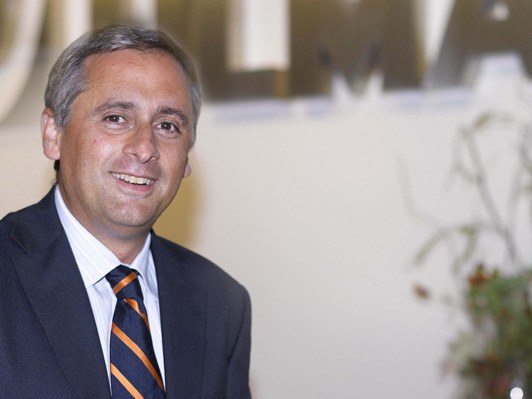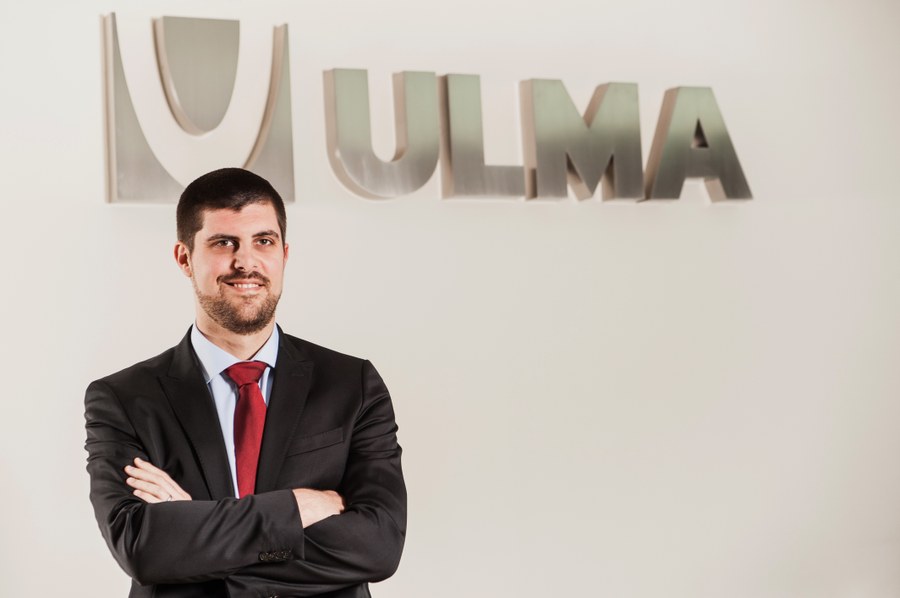“Our organisation’s ideal is based on ensuring our continued sustainability as a comprehensive engineering firm”

How are you experiencing the difficult economic situation in ULMA Handling Systems?
The current situation in which we are in, and that seems like it will be around for the next few years has created a climate of high uncertainty where the rules that worked until now no longer do. This new stage is making us reinterpret all of the market’s variables in order to continue adding value to our offer.
A horizontal and vertical movement is occurring amongst all our competitors.
As of now, we find ourselves with a drastic decrease in new projects in our more traditional markets and a high concentration of competitors with the same clients: A horizontal and vertical movement is occurring amongst all our competitors: those up top have come down, and those below are coming up, while those on the side are getting closer, and we all find ourselves offering something to the same client, making it more difficult to win, and producing a considerable reduction of the margins in our operations.
And all of this along with the complex situation our clients are in to be able to find financing, allowing them to take on their automation projects.
This leads to many decisions being delayed in time, and some disappearing until better times. This new way of competing in the markets is making us search for greater efficiency in our way of working, and reinforcing our competitive position to continue receiving our clients trust in all of the markets we are in.
From a more business perspective, what are UHS´ strengths when facing this difficult economic situation?
Our strengths continue being the same that got us here: A human team with high professional capacity, with the identity of logistical engineering and innovation capable of responding to new market needs and achieving great customer satisfaction.
Our most important guarantee is in improving our internal processes and personnel’s abilities.
Another strength we have developed along the years has been our desire for diversifying our activity, developing a business model based on small lines of business capable of exploiting different market niches and segments within the supply chain. This development has been creating activities like Supply Chain Software that works software solutions for the supply chain, or the recently created Integrated Solutions responding to highly complex and innovative solutions for the distribution sector. Along this path we have also developed a business line called Baggage Handling that develops baggage processing and transport solutions in the airport sector.
Another of our strong points is our experience in developing in international markets, and above all, highlighting our presence in the Brazilian market, that since 1996 has placed us somewhat above the competition that have arrived later to attack this and other markets in South America.
And it is worth noting the wide network of collaborators/alliances we have in different markets and products, which we have been creating along these years, and which distinguish us in our being able to add value to our offer. And now I have to highlight the ULMA DAIFUKU relationship that celebrates its 25 year anniversary of a healthy and beneficial relationship.
What goals have you set for the company in terms of the future, and what are some of the business strategies on which you base yourselves?
Our goal as an organisation is based on ensuring our continued sustainability as a Comprehensive Engineering Firm in Material Handling Systems, capable of responding satisfactorily to our clients’ needs and situations.
For achieving this goal, within the framework of different reflections and management plans, we are working on different strategies: some hope to have a positive external impact, and others aim to continuously improve our internal work processes.
Within the strategies we search for, our position abroad is to distinguish ourselves and sales, which look to create a proposal of distinguished value for our clients.
Within our foreign impact we have growth strategies and portfolios, where we prioritise our products and markets that have been marking the path towards internationalisation.
And finally, it is worth noting the most important strategy for ULMA Handling Systems: focusing on establishing plans to improve our internal processes and personnel’s abilities and with a direct impact on achieving the remaining strategies.







